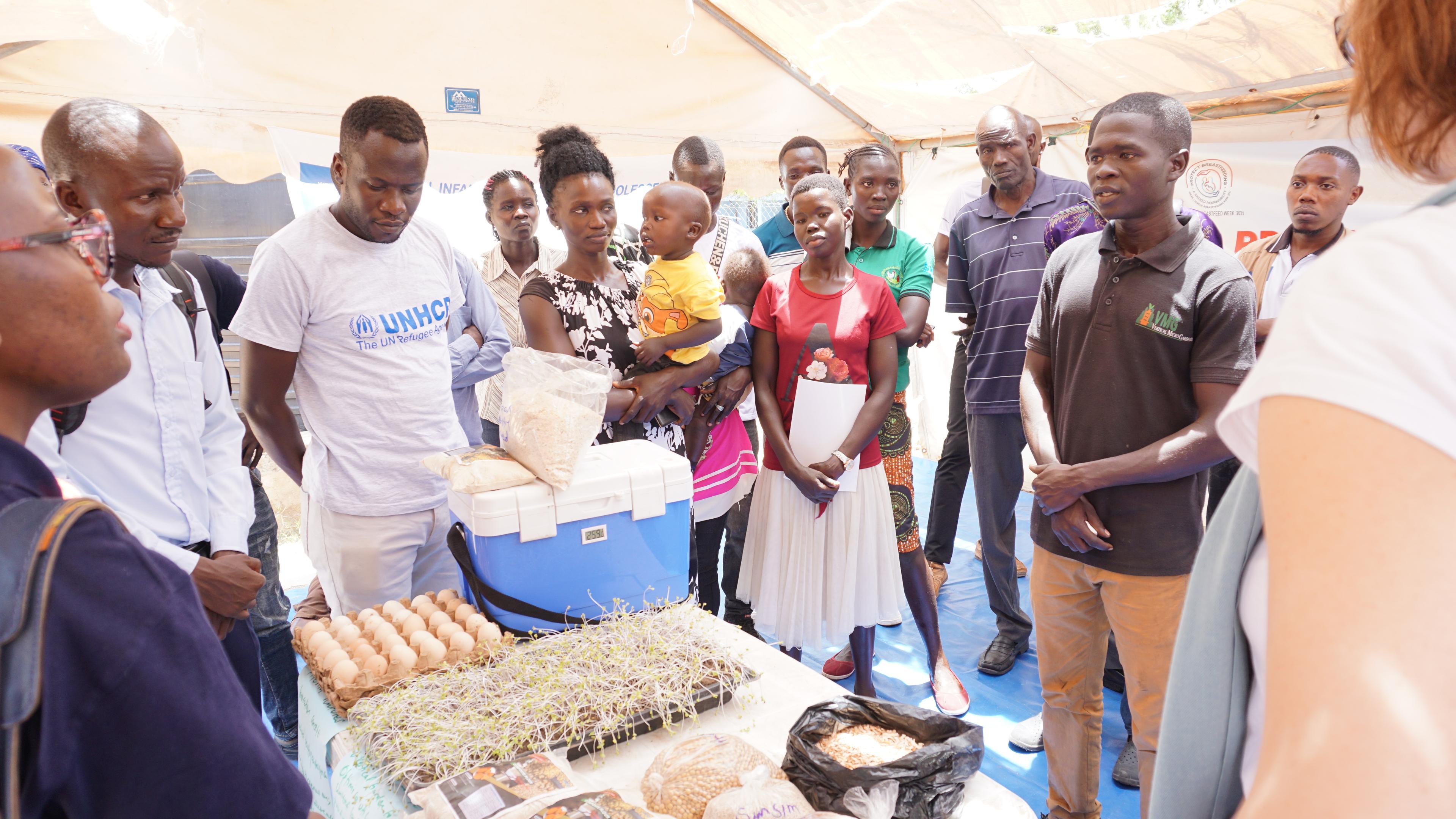Creating a business model for sustainable demand of local nutritious foods
 © Innovation Norway
© Innovation NorwayScope of the project
The Local Innovation Nutrition Solutions (LINS) project aimed to create viable business models to enable the sustainable demand of local nutritious foods in refugee-hosting communities in Uganda. The project sought to address underlying determinants of malnutrition in refugee children living in Kyaka II and Rhino refugee settlements through the analysis and testing of appropriate small-scale solutions and practices, developed through human-centered design processes.
Lessons learned and impact
As part of this project, four different innovations were developed:
Pilot 1: Vertical and Micro Gardening (Start-up): A vertical farms and micro greens project to increase the availability of vegetables that are high in iron, Vitamin-A and other key micronutrients.
Pilot 2: Welthungerhilfe and CEFORD (International & national NGO): A solar dryer of fruits and vegetables project to promote dietary diversity through increased accessibility of fruits and vegetables throughout the year.
Pilot 3: Afema Ventures (private sector): A project that supported creation and scale up of sustainable and inclusive poultry micro-enterprises through provision of facilities for vaccination, improved access to feeds, and trainings on good practices.
Pilot 4: Gulu University (academia): A product innovation project to test the acceptability of a nutrient dense composite flour consisting of millet, sesame, soy and sweet-potato.
Three of the innovations were assessed as successful and raised the most interest among beneficiaries: the solar dryer project, the composite flour, and the vertical farms. The solar dryers were valued because of how they improved all-year round access to vegetables and other dry foods; the composite flour was appreciated mostly because it was liked by both children and adults, although its price was considered high by some and remained a deterrent; and the vertical farms raised interest among communities as a good technology for farming on very meagre land plots.
The LINS project has made a significant contribution to the search for local, creative and feasible solutions to nutrition by enhancing access to, and availability of, diverse nutritious food supplements. Even though all the pilots have been small in scale, the three mentioned innovations demonstrated a great potential for feasibility and scalability. Other lessons learned from the pilot include:
- Anchoring the private sector to support nutrition and food security in local markets present sustainable local solutions.
- Ample time for the innovation from ideation, through testing is an imperative.
- Greater localisation is more sustainable with the right partnership mix of NGO, academia and private sector. It is possible to combine knowledge and practice to identify successful interventions.
- Beneficiary contributions are challenging, especially for refugees who have limited disposable incomes to invest in the respective innovation products such as vertical farming, microgreens farming, composite flour production, solar drying and poultry enterprises. Even at microenterprise level, some financial investment is required to kickstart and sustain production and business enterprises.
- Presence of, and regular support to beneficiaries by the innovators is necessary to sustain innovation adoption. Innovations with more innovator support demonstrated more success and high beneficiary interest and commitment.
- Continuous consultation to receive feedback enables iteration of the product to fit the market.
- Embedding micro-enterprise in the design of the intervention ensures sustainability and adoption.
- Planning for scale from the start is pivotal.
The way forward
The LINS team is currently sourcing for funding to scale the three successful pilots to more beneficiaries within the pilot areas and other regions in Uganda. The team is also identifying opportunities to integrate the innovations into the Save the Children Uganda operations, especially the nutrition programs.
-The funding provided by Innovation Norway has enabled us to work together with the private sector on nutrition challenges for the very first time, says Immaculate Nampijja, project manager at Response Innovation Lab.
Project partners
This project is led by Response Innovation Lab Uganda and Save the Children, who partnered with Afema Ventures, Vertical and Micro Gardens, Gulu University and Welthungerlife & CEFORD.